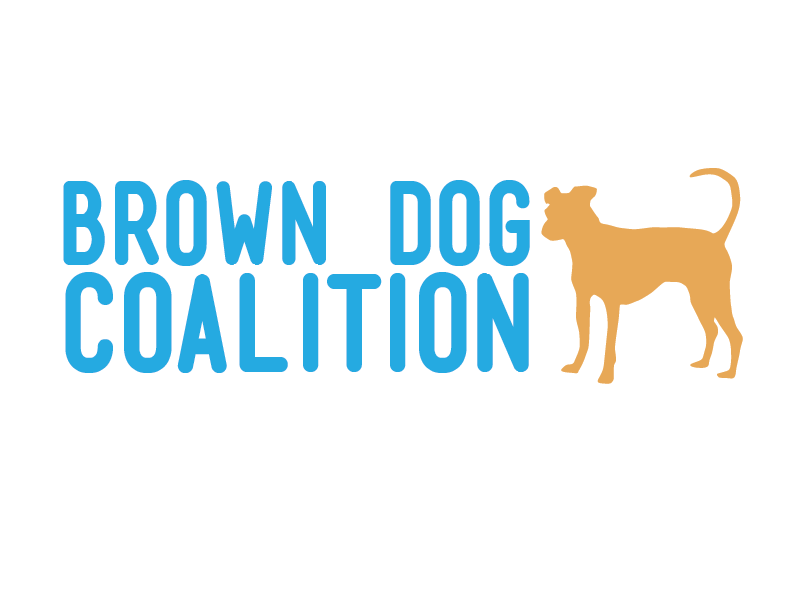How To Choose A Dog Trainer
Dog training is completely unregulated. Read that again.
Anyone can call themself a professional dog trainer. There are no minimum requirements, no required licenses, no national oversight for dog trainers. Be diligent in who your trust with your dog’s mental and emotional wellbeing.
The ultimate goal is to find a dog trainer who will be your partner in advocating for your dog and someone that you trust to guide you and your dog on your training journey.
When to start training
We recommend hiring a dog trainer within the first month of adoption as a preventative measure. A credentialed dog trainer will be able to help you and your dog through your transition, give you specific advice to help your dog decompress, recommend management solutions, and create an individual training plan for your unique needs.
Let go of the idea that training begins the moment you meet. If you’ve just adopted your dog, allow them space and time to decompress before jumping into new behaviors like “sit,” “down,” “stay.” Focus on creating positive associations, building a bond, helping your dog feel safe, and meeting their needs first and foremost.
Dog training has evolved from ideals of “obedience” and “discipline.” The goals of modern dog training are to build confidence, teach life-long skills, empower behaviors and choices, and help dogs succeed in our human world.
“
Dog training has evolved from ideals of “obedience” and “discipline.” The goals with modern dog training are to build confidence, teach life-long skills, empower behaviors and choices, and help dogs succeed in our human world.
How Dogs Learn
Dogs are always learning. They make associations through their emotional response to an experience and they change behavior based on consequences. Below are the scientific definitions of learning theory terms by the American Veterinary Society of Animal Behavior.
Positive reinforcement: by adding something the animal wants, you increase the likelihood the behavior will occur again. (E.g. adding a treat or rewarding a dog for wanted behaviors).
Negative punishment: by removing something the dog wants, you decrease the likelihood that behavior will occur again. (E.g. removing your attention when your dog jumps up to greet you).
Positive punishment: by adding something the animal finds aversive, you decrease the likelihood the behavior will occur again. (E.g. adding the aversive noise, shock, buzz, or vibration when your dog barks).
Negative reinforcement: by removing something aversive, you increase the likelihood a behavior will occur again. (E.g. removing/stopping the aversive noise, shock, buzz, or vibration when your dog comes when called).
Veterinary behaviorists and Ph.D. behaviorists focus on positive reinforcement combined with negative punishment. They reward appropriate behavior and remove the reward for an undesirable behavior.
Choosing a Dog Trainer
Finding the right trainer and training setting for you and your dog is important! Some dogs benefit from in-home, one-on-one style training, while others thrive in a group class setting, or an online, remote dog trainer may be the most accessible option.
When choosing a dog trainer, also consider comfort and connection. Did they listen to you? Did they give clear, concrete answers to questions? Were they helpful and knowledgeable? Did you leave with a clear understanding of next steps?
Language to look for: positive reinforcement, force-free, fear-free, humane training, science-based, reward-based, evidence-based, motivational, enthusiastic learning, LIMA (least intrusive, minimally aversive)
Accredited certifications: CPDT-KA, KPA-CTP, CTC, CCPDT, VSPDT, ABCDT, ADBC, CDBC
Training tools to look for: clickers, treats, food, treat bags, harnesses, gentle leaders, toys, petting, play, rewards
Language to avoid: balanced training, dominance training, pack leader, pack structure, guaranteed results, using all methods of training, using a full range of training tools, giving corrections for unwanted behaviors, punishment, humane/correct/proper use of prong, choke, or e-collar
Non-accredited qualifications: being a “professional dog trainer,” years of experience, growing up with dogs, being a dog whisperer, being raised by wolves, loving dogs, military/police K9 handling, training your neighbor’s dog
Training tools to avoid: shock collars, prong collars, training collars, choke chains, leash corrections, intimidation, alpha rolls, downing a dog, poking, kicking, shaking, shaker cans, bean bags, guttural grunting
A note on board and train facilities: Brown Dog Coalition advises against the use of board and train facilities and believes learning should be a shared experience between pet parents and their dog.
“
[Prong, choke and shock collars] ‘work’ by engendering fear, pain, and distrust... they cause long-term damage that make dogs more reactive, less trusting, and less able to reach their full potential in their partnership with humans... These are not my opinions: these are the findings from the scientific literature.
—Dr. Karen Overall (Journal of Veterinary Behavior, 2017)
Good Dog Guaranteed?
Behavior is a science, but it is not a guarantee. An honest dog trainer will not guarantee results from training, especially in a certain amount of time. A claim like, “I can fix your dog’s leash reactivity in an hour,” is a big red flag—similar to most quick fixes, they usually back fire.
A dog trainer should ensure satisfaction and refer you out to someone who is more specialized or experienced if they are not able to meet your training goals.
Find a Certified Dog Trainer Near You
We recommend searching an online directory of certified dog trainers near you. Look at a dog trainer’s accreditations, continued learning, case studies, and online reviews to make an informed decision about who to trust with your dog!
Dogly online training communities
Association of Professional Dog Trainers
Karen Pryor Academy dog trainers
Victoria Stillwell Academy dog trainers
If you would like more information or training resources, email us. We have a list of certified dog trainers and a veterinary behaviorist recommended by volunteers and adopters!





